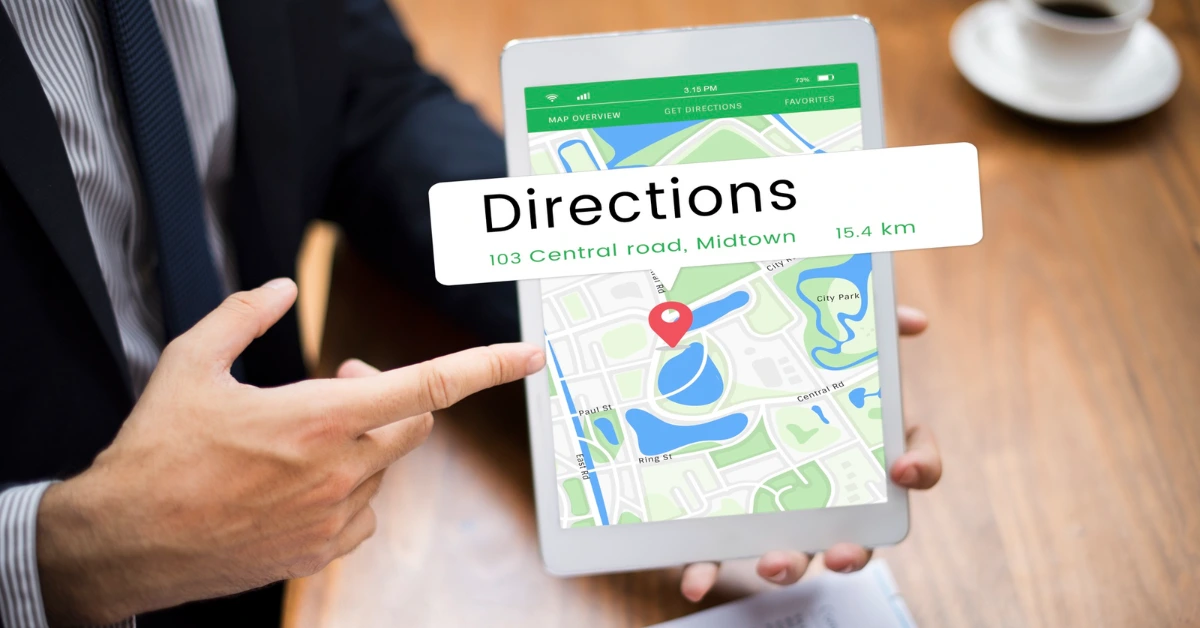White label reseller programs let you offer an existing product or service under your own brand. In this model, the original provider creates and maintains the software or product, while you handle the branding, marketing, and customer support. Think of the blank label above as a ready-made product waiting for your logo – you get all the benefits of a complete solution without building it from scratch. This approach is cost-effective: you avoid R&D and get to market faster, allowing you to expand your offerings and revenue with minimal investment.
What Are White Label Reseller Programs?
A white label reseller program is a partnership where a company (the reseller) sells products or services created by another company (the vendor) under its own brand. In practice, the vendor handles development, hosting, updates and support, and the reseller simply adds their logo and brand messaging. Vendasta explains that “white-label just means you’re reselling software products and services… under your own brand name”. Similarly, Infinity defines these programs as a way for businesses to “rebrand and sell software and/or services developed by another company as their own”. The workflow is straightforward: the vendor builds and updates the solution, then grants you a license or account. Your role is to customize branding (logos, colors, domain) and sell it to end customers. You collect the revenue and provide first-line support, while the vendor ensures the product stays high-quality. This symbiotic relationship lets you leverage an established product – “imagine pitching a whole suite of digital solutions to a client,” as Synup notes, instead of just one. You become the trusted face, even though the core product is “original” to the vendor.

How Do White Label Reseller Programs Work?
The mechanics of a white label program are simple. First, you sign up as a partner or reseller with the vendor (often an agency or enterprise software provider). You typically pay a wholesale fee or share revenue in return for the right to sell the product under your brand. Then you set up and customize the product (for example, adding your logo, domain, and any custom messaging). When you market and sell it, you do so as if it were your own creation. Customers purchase from you, and you deliver the service. Behind the scenes, the original provider continues to enhance and maintain the product. In short, “the parent company creates and maintains the software… while the white label reseller focuses on marketing, selling, and providing customer support under their own brand”. This arrangement lets you build trust and a full solution portfolio without the overhead of development.
Key Benefits of White Label Reseller Businesses
White label reselling offers numerous advantages for a beginner entrepreneur or agency:
- Low Development Costs: You avoid the high costs of creating software or products from scratch. Since the vendor does R&D, you skip expensive development cycles.
- Faster Time to Market: You can launch new products quickly because the product is already built. This speed lets you seize opportunities and answer customer needs without long delays.
- Scalability: It’s easy to scale your offerings. You can add more white-label products (marketing tools, chatbots, websites, etc.) as you grow, without hiring a big team.
- Stronger Brand Perception: By offering a wider suite of solutions, you strengthen your brand. Clients see you as a full-service provider. Synup even found agencies using white-label services could increase client trust by 35% in a few months.
- Focus on Core Strengths: You can concentrate on marketing, sales, and customer relationships rather than technical maintenance.
- Increased Revenue: More services typically mean more sales. In fact, studies show resellers “are able to increase revenue by up to 30%” when adding white-label solutions. You essentially get a bigger slice of the pie for minimal extra work.

White labeling means leveraging someone else’s “original” work to boost your bottom line. The stamp above reminds us that the product is originally developed by the vendor, not you. The benefit? You skip R&D and development costs entirely, which can significantly improve your profit margins. For example, if you normally spend tens of thousands on software development, that cost is eliminated. Instead, you invest in branding and sales. This accelerated growth approach has proven effective: agencies see tangible ROI quickly, gaining up to 30% more revenue and much stronger client confidence.
How to Get Started in White Label Reselling
- Research Your Niche: Identify a product or service that fits your audience and your brand’s capabilities. EngageBay advises thoroughly “research[ing] what you want to sell, whom you’ll sell to, and how you’ll supply it”. Look for market gaps and see what your customers need. For instance, if you’re a marketing agency, you might consider white-label tools for CRM, email marketing, or loyalty programs that complement your services.
- Find a Reliable Provider: Once you’ve chosen a niche, find a reputable white-label supplier. Prioritize quality and support, not just price. For example, Zoho offers a white-label version of its CRM, and ManyChat has a partner program for chatbots. Review providers’ track records and test the product yourself.
- Set Up Branding: After selecting a program, customize the product. Update logos, color schemes, domain names, and any marketing materials so the product feels like your own. Ensure the vendor allows full white-label customization (some may leave a small “powered by” mark).
- Plan Your Pricing: Decide how you’ll price the service. Typically, you pay a wholesale or subscription cost to the vendor and then set your own retail price. Make sure to factor in any fees so you remain profitable.
- Market and Sell: Create sales collateral (landing pages, demos, etc.) for your branded product. Leverage your existing clients or find new ones. Emphasize the benefits (e.g., “get an email marketing platform under our brand”) to build interest.
- Support and Upsell: Provide first-level support to your customers and handle billing. Use the vendor’s resources or training for technical backup. Also, cross-sell additional white-label services as you scale.
By following these steps – researching the market, choosing the right partner, and branding effectively – you can launch your white label reseller business smoothly.
Keyword Research for White Label Niches
Effective SEO starts with understanding what your target audience is searching for. To capture traffic for white label opportunities, identify core keywords and related terms. Start with your main topic (white label reseller programs) and brainstorm variations. Include the exact terms from your niche, such as “white label loyalty program reseller,” “white label chatbot reseller,” and “white label website builder reseller program.” Also cover one-word variants or common misspellings like “whitelabel reseller.” Use SEO tools (Google Keyword Planner, Ahrefs, SEMrush, or AnswerThePublic) to check search volumes and competition for each term.
Next, leverage semantic and NLP-based keywords. Modern search engines use semantic search to interpret intent. So include related phrases and context. For example, target “chatbot white label reseller” in addition to “white label chatbot reseller,” or “white label reseller services” to catch broader queries. Incorporate question-based keywords as they’re common in queries. Questions like “How do white label reseller programs work?” or “What are the top white label opportunities in 2025?” should appear as headings or in content, since Google often shows Q&A snippets.

Example keyword set:
- White Label Reseller Programs (primary keyword)
- Best White Label Reseller Programs
- White Label Reseller Business, white label reseller services, white label reseller opportunities (semantic variations)
- White Label Loyalty Program Reseller, chatbot white label reseller, white label website builder reseller program (niche-specific terms)
- Private Label Reseller Program, reseller opportunities private label (related niche, physical goods)
Analyze search intent behind each. For instance, a query with “best” indicates research/awareness, so you’d list top programs. A how-to question needs an explanatory answer. Using a mix of exact-match and related terms (and answering questions) will cover semantic coverage and improve rankings. Remember to also check “People Also Ask” and auto-complete suggestions in Google to discover natural-language queries. This way your article will target both core terms and long-tail questions that potential resellers might use.
Popular White Label Platforms and Services
To illustrate how diverse white label programs can be, consider these examples of leading platforms (often considered among the top white label reseller programs):
- Vendasta: An all-in-one local marketing platform for agencies. Vendasta offers CRM, marketing automation, listings, and more under a reseller model. It has a comprehensive app marketplace. Pricing starts around $79/month for the basic agency plan.
- GoHighLevel (HighLevel): A popular marketing CRM and funnel-builder designed for agencies. It includes email/SMS marketing, pipelines, and more. Their Agency Unlimited plan (which includes full white labeling) starts at ~$297/month, with a basic plan at $97/mo.
- ManyChat: A top chatbot platform (Facebook Messenger, WhatsApp, Instagram bots). ManyChat offers a partner/affiliate program where you can earn up to 50% commission by promoting their service (even though it’s not fully rebrandable, it’s a key chatbot tool agencies use).
- ActiveCampaign: An email marketing and automation tool. It supports white-label partnerships. Agencies often resell ActiveCampaign services to clients to handle email campaigns and CRM.
- BotPenguin: A white-label AI chatbot platform (as our research source is itself an example). BotPenguin lets resellers launch fully branded chatbots within hours. It offers customizable subscription plans and integrations, enabling 24/7 support or lead-generation bots.
- Zoho CRM: A customer-relationship management system with a white-label option. You can rebrand Zoho CRM and sell it as your own solution, helping clients manage contacts and sales pipelines under your brand.
- BigCommerce: A leading e-commerce platform that offers a white-label reseller program. Web designers and agencies can provide branded online stores to clients using BigCommerce’s infrastructure.
- Simvoly: A website and funnel builder with a dedicated white label website builder reseller program. Agencies can use Simvoly’s drag-and-drop tools to create client websites under their own brand (pricing starts at just a few dollars per site).
- Others: Many other niches exist. For example, white-label loyalty program resellers partner with loyalty software providers to offer rewards programs, and reseller opportunities private label exist in physical goods (groceries, apparel) where store brands are popular. In fact, private-label products can cut costs by ~40–50% and enjoy high customer preference, illustrating the demand for branded solutions.
Top White Label Opportunities in 2025
As we look toward 2025, several trends point to promising white-label niches. The white-label software market is booming – one forecast predicts over $225 billion by 2027. Meanwhile, the global SaaS industry (which includes many white-label services) is projected to reach roughly $819 billion by 2030. This growth suggests vast opportunity in various sectors:
- AI Chatbots and Automation: Chatbots are revolutionizing customer engagement. Offering chatbot white label reseller services is huge. Platforms like BotPenguin (which can deliver a custom-branded AI chatbot in hours) and tools like ManyChat are in high demand as businesses automate support and marketing.
- Marketing Automation and CRM: Agencies can resell marketing tools (email, SMS, funnels) under their brand. For example, ActiveCampaign and HubSpot have white-label versions, and Zoho CRM’s rebrandable solution is popular. In 2025, personalized marketing will be key, so resellers that offer custom-branded email and CRM platforms will thrive.
- E-commerce and Online Stores: With online retail surging, white-label e-commerce solutions are hot. BigCommerce’s program is one example. Think also of niche site builders or multi-vendor platforms that agencies can rebrand. If retail and wholesale players seek quick online presence, white-label stores are an opportunity.
- Loyalty and Rewards Programs: Customer retention is growing more sophisticated. Offering a white label loyalty program (for example, through a third-party loyalty software) can help clients boost repeat business. Trends show loyalty programs will emphasize personalization and sustainability, so a reseller that can brand these advanced reward systems could gain an edge.
- Emerging Tech & Services: Industries like healthcare, fintech, and education are adopting SaaS tools rapidly. Opportunities include white-label telehealth apps, payment solutions, or e-learning platforms. Identifying a niche underserved by major brands can yield strong white label reseller opportunities.
- Private-Label Physical Products: Outside software, private-label goods (e.g. organic foods, supplements, cosmetics) remain a growth area. The same concept applies: you sell these products under your brand. In retail, 82% of consumers now prefer white-label brands over national brands, and margin advantages (40–50% cost reduction) make private-label reselling attractive.
In summary, top opportunities in 2025 revolve around areas with high tech adoption (AI, SaaS, e-commerce) and consumer preference for affordable or personalized solutions. By staying on top of industry trends – from white label chatbot solutions to private label programs – you can position your reseller business in a lucrative niche.
On-Page SEO and Internal Linking
To ensure this guide reaches the right audience, follow these on-page SEO best practices:

- Primary Keyword Placement: Include “white label reseller programs” in the title, first paragraph, and a few headings. Variations (bolded above) like whitelabel reseller, white label reseller business, etc., help cover semantic search.
- Headings and Structure: Use headings (H2/H3) for question keywords (e.g., “How do white label reseller programs work?” and “What are the top white label opportunities in 2025?”). This improves scalability and targets those exact queries.
- Internal Linking: Link to relevant pages on your site using descriptive anchor text. For example, link “digital marketing services” to your agency’s services page, or “reseller opportunities” to a blog or resource page on reseller solutions. Anchor text like “white label loyalty programs” or “chatbot solutions” can point to related content or categories, distributing link equity and improving user navigation.
- Meta Title/Description: An SEO-friendly title might be: “White Label Reseller Programs – Ultimate Guide 2025 | [Your Brand]”. The meta description should be concise (around 150–160 characters) and include the main keyword: e.g., “Learn what white label reseller programs are, their benefits, and how to start in 2025. Covers top programs like GoHighLevel, Vendasta, ManyChat, and more.” This helps click-through rates.
- Semantic Content and LSI: Write naturally and include related terms (e.g. “reseller services,” “agency partner program,” “private label program”) throughout the text to help search engines understand context.
- Bullet Lists and Tables: Use lists and tables (as above) to break up text. Include keywords in list headings or cells where relevant.
- Images and Alt Text: For any images, use descriptive alt text like “diagram of white label reseller model”. (In this post, we embedded illustrative images to break up content and support concepts.)
- External References: Credible citations (as done here) boost trust. This guide includes data from industry reports and authoritative blogs (cited above) to support key points.
By implementing these SEO practices – from keyword targeting to meta tags and internal linking – you’ll help search engines understand your content and rank it for queries about white label reselling.







Share